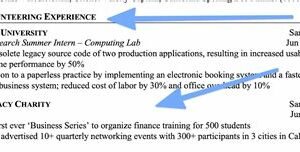Table of Contents
Discover the diverse and rewarding United States volunteer programs that offer opportunities for individuals to make a positive impact on local communities. From environmental conservation initiatives to education and healthcare projects, these programs provide a chance to contribute to social causes while gaining valuable skills and experiences. Explore the various volunteer options available across the country and join the effort to create a better future for all.
United States Volunteer Programs offer a unique opportunity for individuals to make a meaningful impact while gaining valuable experience. Whether you are a recent graduate looking to expand your skillset or a seasoned professional seeking to give back to society, these programs provide a platform for personal growth and community service. With a myriad of options available, ranging from environmental conservation to disaster relief, there is something for everyone who wants to contribute to the greater good. Additionally, volunteer programs in the United States offer participants the chance to connect with like-minded individuals, forming lifelong friendships and networks that extend far beyond their time of service. Transitioning into a world of selflessness and compassion, these programs not only benefit the communities they serve but also empower individuals to become agents of change in their own lives.
Introduction
Volunteering is an essential component of building stronger communities and making a positive impact on society. In the United States, there are numerous volunteer programs that offer individuals the opportunity to contribute their skills and time towards various causes. These programs not only benefit the communities they serve but also provide valuable experiences for volunteers. This article explores some of the noteworthy volunteer programs in the United States.
AmeriCorps
AmeriCorps is a national service program that engages thousands of Americans in intensive service each year. Volunteers commit to full-time or part-time positions within nonprofit organizations, public agencies, or schools. Through AmeriCorps, individuals have the opportunity to address critical community needs such as disaster response, education, environmental conservation, and more. Volunteers also receive a modest living allowance, health coverage, and an education award upon completion of their service.
Peace Corps
The Peace Corps is an internationally recognized volunteer program that sends Americans abroad to work on projects aimed at promoting social and economic development. Volunteers serve in various sectors, including education, health, agriculture, and community development. The Peace Corps provides volunteers with a unique opportunity to immerse themselves in a different culture while making a meaningful difference in the lives of others. Volunteers receive intensive training and support throughout their service.
Habitat for Humanity
Habitat for Humanity is a well-known nonprofit organization that aims to eliminate homelessness and provide affordable housing. Volunteers can participate in building homes, renovating properties, or assisting with disaster response efforts. Habitat for Humanity also offers volunteer opportunities in advocacy, fundraising, and community outreach. Volunteers do not need prior construction experience to contribute to this meaningful cause and make a lasting impact on families in need.
Red Cross
The American Red Cross is a humanitarian organization that provides emergency assistance, disaster relief, and support to individuals and communities in need. Volunteer opportunities within the Red Cross range from disaster response and blood donation drives to supporting military families and providing health and safety training. This program allows individuals to contribute their skills and time towards helping others during times of crisis or need.
Big Brothers Big Sisters
Big Brothers Big Sisters is a mentoring program that matches adult volunteers with children facing adversity. Through regular one-on-one interactions, volunteers provide guidance, support, and positive role modeling to help children reach their full potential. By participating in this program, volunteers can have a profound impact on the lives of young individuals, fostering their personal growth and development.
Meals on Wheels
Meals on Wheels is a program that delivers nutritious meals to elderly and homebound individuals who may be unable to cook or shop for themselves. Volunteers can contribute by delivering meals, providing social interaction, and performing wellness checks. This program not only ensures that vulnerable individuals receive proper nutrition but also offers companionship and a sense of community to those who may otherwise feel isolated.
Teach for America
Teach for America is a program that addresses educational inequity by recruiting and training individuals to teach in low-income communities across the country. Volunteers commit to teaching for at least two years, during which they work towards providing quality education to students who may face socio-economic barriers. Teach for America offers extensive training and support to ensure that volunteers are equipped with the necessary skills to make a difference in the lives of their students.
Environmental Conservation Corps
The Environmental Conservation Corps engages volunteers in projects focused on preserving and restoring natural resources. Participants work on initiatives such as trail maintenance, reforestation, wildlife monitoring, and environmental education. This program provides individuals with the opportunity to contribute to the protection of the environment while gaining valuable hands-on experience in conservation efforts.
Special Olympics
The Special Olympics is a volunteer program that provides individuals with intellectual disabilities the opportunity to participate in sports and athletic competitions. Volunteers can assist in organizing events, coaching athletes, providing transportation, and offering support during competitions. By getting involved in the Special Olympics, volunteers help empower individuals with disabilities and promote inclusivity in sports and society.
Conclusion
United States volunteer programs offer a wide range of opportunities for individuals to contribute their time and skills towards making a positive impact on communities and society as a whole. Whether it’s through organizations like AmeriCorps and Peace Corps, or programs focused on housing, education, healthcare, or the environment, volunteering allows individuals to create lasting change and gain valuable experiences. By participating in these programs, volunteers not only enrich the lives of others but also grow personally and develop a deeper understanding of the challenges faced by diverse communities.
Overview of United States Volunteer Programs:
United States Volunteer Programs encompass a wide range of opportunities for individuals looking to contribute their time and skills towards various causes. From community service initiatives to international relief work, these programs provide an avenue for individuals to make a meaningful impact on society. Whether it’s helping the underprivileged, promoting environmental sustainability, or supporting education, these programs offer diverse options to suit different interests and skill sets.
Types of United States Volunteer Programs:
There is a multitude of volunteer programs available in the United States, catering to various interests and needs. These can include programs focused on education, healthcare, disaster relief, environmental conservation, animal welfare, and many more. Whether through nonprofit organizations, government agencies, or international associations, individuals can choose from short-term or long-term commitments that align with their passions and goals.
Benefits of United States Volunteer Programs:
Participating in volunteer programs in the United States offers numerous personal and professional benefits. Volunteers gain a sense of fulfillment and purpose while making a positive impact on their local communities or even global issues. Moreover, these programs provide opportunities to develop new skills, expand professional networks, and enhance cultural understanding through interactions with diverse populations. Volunteering also allows individuals to gain a deeper perspective on societal challenges and fosters personal growth.
Requirements and Eligibility:
To participate in United States Volunteer Programs, individuals typically need to meet certain requirements and eligibility criteria. These can include age restrictions, background checks, necessary skill sets, and commitment to adhere to program guidelines and regulations. Some programs may also require specific certifications or prior experience in relevant fields. It is important to carefully review the prerequisites of each program to ensure a successful application.
Funding and Support for Volunteers:
United States Volunteer Programs often provide funding and support mechanisms to ensure volunteers have the necessary resources to fulfill their commitments. This can include travel stipends, accommodation arrangements, and access to training or educational opportunities. Nonprofit organizations or government agencies may also offer grants or scholarships for individuals who may face financial barriers to volunteering.
Impact of United States Volunteer Programs:
Volunteer programs in the United States play a significant role in addressing societal challenges, promoting social justice, and effecting positive change. These programs contribute to community development, environmental conservation efforts, disaster response, and various other areas. By engaging volunteers in service initiatives, these programs leverage the power of collective action to make a lasting impact on individuals, communities, and the nation as a whole.
Volunteerism and Professional Development:
Participating in United States Volunteer Programs can greatly enhance professional development. Volunteers can acquire valuable skills such as leadership, teamwork, communication, problem-solving, and project management, which are highly sought after by employers. Additionally, volunteering allows individuals to gain practical experience and test their interests in specific sectors or industries, helping them make informed career decisions.
How to Get Involved in United States Volunteer Programs:
Getting involved in United States Volunteer Programs is often as simple as conducting research and reaching out to relevant organizations. Websites, directories, and online platforms dedicated to volunteering provide comprehensive information on available programs, their application processes, and contact details. Interested individuals can also attend volunteering fairs, workshops, or information sessions to connect with organizations and learn more about the opportunities that align with their interests and ambitions.
United States Volunteer Programs are an invaluable asset to society, providing countless benefits to both individuals and communities. These programs offer opportunities for individuals to give back, develop new skills, and make a positive impact on society. With a professional voice and tone, let’s explore some key points of view regarding the importance and advantages of these programs:
1. Significant societal impact:
- Volunteer programs in the United States play a vital role in addressing various social issues, ranging from poverty and homelessness to environmental conservation and education.
- By engaging in volunteer work, individuals contribute to the overall well-being of the community and help build a more inclusive and equitable society.
2. Personal growth and development:
- Participating in volunteer programs offers individuals the opportunity to develop crucial skills such as leadership, teamwork, and communication.
- These programs provide a platform for personal growth, enabling volunteers to enhance their self-confidence, problem-solving abilities, and adaptability.
3. Networking and career advancement:
- United States Volunteer Programs often provide a chance to connect with like-minded individuals, creating valuable networking opportunities.
- Volunteering can also serve as a stepping stone for career advancement, as it allows individuals to gain practical experience, explore different fields, and demonstrate their commitment to social causes.
4. Enhanced cultural understanding and empathy:
- Volunteer programs encourage individuals to engage with diverse communities, fostering cultural understanding and empathy.
- By working alongside people from different backgrounds, volunteers develop a broader perspective and learn to appreciate the value of diversity.
5. Health and well-being benefits:
- Engaging in volunteer work has been shown to have positive effects on mental and physical health.
- Volunteering offers a sense of purpose, fulfillment, and overall life satisfaction, leading to reduced stress levels and improved well-being.
In conclusion, United States Volunteer Programs are instrumental in creating positive change in society while providing individuals with personal growth opportunities. These programs foster social impact, skill development, networking, cultural understanding, and improved well-being. It is crucial to support and encourage the participation of individuals in volunteer programs as they contribute to building a stronger, more compassionate nation.
Thank you for taking the time to visit our blog and learn more about the United States volunteer programs. We hope that the information provided has been both informative and inspiring, encouraging you to consider getting involved in these valuable initiatives.
Volunteering is not only a way to give back to your community, but it is also an opportunity for personal growth and development. By engaging in volunteer work, you have the chance to make a positive impact on the lives of others and contribute to the betterment of society as a whole.
If you are passionate about a particular cause or have a desire to help those in need, there are countless volunteer programs available throughout the United States that cater to a wide range of interests and skills. Whether you are interested in environmental conservation, education, healthcare, or social services, there is undoubtedly a program out there that aligns with your passions and values.
By participating in a volunteer program, you will not only gain valuable experience and skills, but you will also have the opportunity to connect with like-minded individuals who share your commitment to making a difference. Building relationships and networking with other volunteers and professionals in the field can open doors to new opportunities and collaborations, further enhancing your personal and professional growth.
Whether you choose to dedicate a few hours of your time each week or embark on a long-term commitment, every act of volunteerism brings us one step closer to creating a more compassionate and equitable society. The United States is filled with organizations and nonprofits that rely on the dedication and support of volunteers to achieve their missions, and your contribution can truly make a difference.
We encourage you to explore the various volunteer opportunities available in your area or even consider venturing outside your comfort zone to experience volunteering in different parts of the country. Regardless of where you choose to volunteer, remember that your efforts are valued and appreciated.
Thank you once again for visiting our blog and taking an interest in United States volunteer programs. We hope that you feel inspired to make a positive impact in your community and beyond. Together, we can create a better future for all.
.
Here are some common questions that people also ask about United States Volunteer Programs:
1. What are the benefits of participating in a United States volunteer program?
- Volunteering allows individuals to contribute their skills and time towards meaningful causes, making a positive impact on communities and society as a whole.
- It provides an opportunity to gain valuable experience, develop new skills, and enhance personal growth.
- Volunteer programs often offer networking opportunities, allowing individuals to connect with like-minded people, professionals, and potential mentors.
- Participation in volunteer programs can boost self-confidence, improve interpersonal skills, and foster a sense of fulfillment and purpose.
2. How can I find volunteer programs in the United States?
- There are various online platforms and websites dedicated to connecting volunteers with organizations offering opportunities.
- Local community centers, churches, and non-profit organizations often have information about volunteer programs available in their area.
- Volunteer service organizations, such as AmeriCorps and Peace Corps, provide extensive resources and assistance in finding volunteer opportunities across the United States.
3. Are there age restrictions for participating in United States volunteer programs?
- The age requirements vary depending on the specific volunteer program and organization.
- Some programs may have minimum age restrictions, typically requiring participants to be at least 18 years old.
- However, there are also volunteer programs specifically designed for younger individuals, such as youth volunteer programs or family-friendly initiatives.
- It’s important to research and inquire about age requirements when considering a volunteer program.
4. Can I volunteer in the United States if I am not a U.S. citizen?
- Many volunteer programs in the United States are open to individuals of all nationalities and citizenship statuses.
- However, certain programs may have specific requirements or restrictions based on immigration status.
- It’s advisable to check the eligibility criteria of each program and ensure that you meet any necessary legal requirements.
- Additionally, international volunteers may need to obtain the appropriate visa or work permit to participate in long-term volunteer programs.
5. Are United States volunteer programs only available for long-term commitments?
- No, volunteer programs in the United States offer a range of commitment options.
- While some programs require a longer-term commitment, such as several months or a year, there are also opportunities for short-term or one-time volunteering.
- Organizations often have flexible schedules to accommodate individuals with various availability.
- Volunteers can choose programs that align with their desired time commitment, whether it’s a few hours per week or a full-time engagement.
Remember to always research and communicate directly with the organizations offering volunteer programs to obtain accurate and up-to-date information regarding their specific requirements, application processes, and available opportunities.






